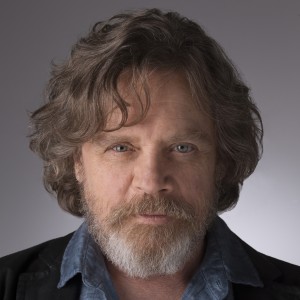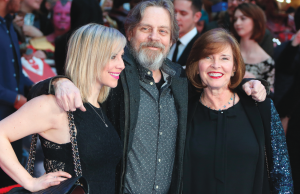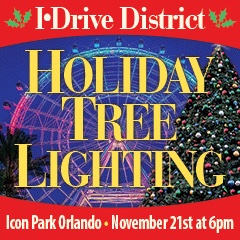An Experienced Hope
Mark Hamill dishes on his career, marriage, family vacations—and of course, Star Wars.
 Not many Hollywood actors get the opportunity to play the most virtuous of heroes and the most despicable of villains, but for Mark Hamill, it’s all part of the job. From his iconic portrayal of Star Wars’ Luke Skywalker to his long-running voice work for Batman’s arch-nemesis, the Joker, in animation and video games, plus many other roles, Hamill has made a lasting impact on pop culture—and he even found time to raise a family with his wife of four decades along the way.
Not many Hollywood actors get the opportunity to play the most virtuous of heroes and the most despicable of villains, but for Mark Hamill, it’s all part of the job. From his iconic portrayal of Star Wars’ Luke Skywalker to his long-running voice work for Batman’s arch-nemesis, the Joker, in animation and video games, plus many other roles, Hamill has made a lasting impact on pop culture—and he even found time to raise a family with his wife of four decades along the way.
With Star Wars Celebration returning to Orlando on April 13-16, we broke out an old Jedi mind trick or two to convince Hamill to speak with us for this exclusive interview. You won’t find any spoilers for Star Wars: The Last Jedi here, but as the man himself might say: May the Force be with you.
ORLANDO FAMILY MAGAZINE: As Luke Skywalker, you portrayed the son of one of pop culture’s worst fathers, but you’re a devoted father and husband in real life. In what ways has your alter ego’s family shaped your relationship with your own family?
MARK HAMILL: Oh gosh. One of those deep, almost unanswerable questions, that is. You know, art reflects life and vice versa. I think the films are relatable because they are about family. And they’re optimistic films. I think they appeal to the better angels of our souls. The fact that Luke could stand up to his father and turn down the opportunity to be the second most powerful man in the galaxy—that’s something.
I think children respond, and I’m really happy that it appeals so much to the young because it’s very clearly defined: good and evil. It preaches the ideal, which is selflessness and devotion to a cause greater than your own. The fact that it does so in a way that it engages people with the action and adventure and the humor and so forth, it’s sort of a disguised message.
But to try and answer your exact question, that’s hard to know, because obviously, I’m a person playing a character. Actually, when I read the script, I thought, “Wow, that Darth Vader has almost the best part in the movie.” You do a lot of work, and yet you get such a response to his character.
I guess that’s the best way I can answer it: I never mistake myself for being as courageous and admirable as Luke, but it sure is fun playing him.
OFM: You and your wife, Marilou York, are approaching your 40th wedding anniversary, which is no mean feat—especially in Hollywood. What’s the secret of your success?
MH: I always say one word: acceptance. It’s one of those things where over the years you can have trying times and difficulties, and sometimes people are too quick to just say, “OK, we’re going to remedy it by ending the relationship.” I would caution people that if you find somebody that complements you in a way that is positive, to try and work things through.
[York] was my dental hygienist. So, I think it’s important that she was somebody who was familiar with show business—I mean, she cleaned a lot of famous people’s teeth—but wasn’t totally cowed by celebrity. She seemed to be sort of grounded in that way. And then of course we had three children. To me, that was the most important thing. You want them to have stability in their lives and a solid foundation and so forth.
I don’t really know how to answer that, either, otherwise I’d write a marriage manual. I will say that two words are important: Don’t cheat. That’s a good one. I mean, so many people say to me, “I don’t understand, my wife is filing for divorce.” And you say: “Well buddy, you had an affair with your secretary. Don’t be so bewildered by that.” Listen, I’m not one to come to for marriage advice, believe me. But like I say, if something’s … not broke don’t fix it.
OFM: How do you think your own turn at parenting turned out?
MH: You know, it’s trial and error. You try and make sure you listen to them. My father was authoritarian. He was a military officer. So, I was determined to try and be less intimidating. People say, “You’re too permissive,” and this and that, but I always felt like if my kids are happy, I was happy. That’s one of the things I try to keep in mind, and also to keep in mind that they are people in their own right … and to have an open mind and an open heart.
It wasn’t easy, but I am proud of the fact that they’re all grown now and we still have a wonderful relationship, as opposed to them all growing up and hating my guts.
OFM: You were in your mid-20s when Star Wars debuted, and in your mid-60s when you returned to the franchise for 2015’s The Force Awakens. How would you have handled that initial fame differently if you were the same man then that you are today?
MH: I was sort of in a bubble. When I did Star Wars, I immediately was working on another film. I was doing Corvette Summer when the full impact of it really hit. So, I was sort of in a bubble. I didn’t really realize the enormity of it until it started showing up in sketches on Saturday Night Live, political cartoons, and it became sort of a pop-culture reference, referring to certain politicians as Darth Vader and all that. It really entered the vernacular awfully quickly.
I think what happened when I came back to it, I could enjoy it in way I never could when I was in my 20s. Because there was some perspective on it. Star Wars was my first movie, so you think, well, they’re all going to be like this. I think I have an appreciation that I never would’ve had before, and it’s kind of fun being around Daisy Ridley and John Boyega and Oscar Isaac and all these young people that are closer in age to what I was when the first film came out, to watch and see how they deal with it all. They are all terrific actors. It’s sort of an accepted set of events now to have these blockbusters that connect on so many levels. But again, I’m enjoying it more now than I did then.
OFM: While filming The Force Awakens, you were about the same age as Sir Alec Guinness was when he filmed the original movie, and the two of you reportedly had a good relationship until his passing. Care to discuss that bond?
MH: I idolized Alec like any actor would and was very familiar with his work in the Ealing comedies, and Bridge On the River Kwai, and Murder by Death, and just so many films. So, I was really in awe of the man, and it surprised me how easy it was to be around him. I could make him laugh, which I know he enjoyed. He would not offer advice even though I was seeking it, and one thing that was nice about our relationship was that we did stay in touch. I would visit him or call him when I was in England, I went to see him in the West End in the theater and we’d go out afterwards and have dinner. We would correspond, he sent me letters.
He was really someone that was from another era of show business, one that I sort of felt was much more glamorous and interesting and real than anything we have currently. And I guess there’s a tendency to idealize the past, but I was just so grateful that he would deem me worthy of his attention, even after wrapping the film. I was endlessly in his dressing room talking, we shared a love of Laurel and Hardy, and I was surprised at how he mentioned he was influenced by Stan Laurel. Someone that you wouldn’t think of right away when considering Guinness’ work. He was just very open about these things.
He also told me to remember to be true to who you are and be loyal to friends. Sometimes he would tell you a story about someone he had helped get a part or something, who later became very full of themselves and let it go to their heads. He stressed loyalty a lot. He said, “Realize who the people important to you are in life.” His advice was something that I took to heart. And I would say, “Well who was that person?” And he would say [impersonating Guinness’ voice], “No, no, no, no, it’s not important who it was.” He was always a very influential person before I met him, and so much more so after I got to know him.
OFM: You got to spend some time in Orlando when you participated in Hollywood Studios’ Star Wars Weekend back in 2014. What did you think of our city?
MH: Well, obviously, the climate. The people are very, very nice. We were able to go over and go on that Harry Potter attraction [at Universal Studios Orlando], which was mindboggling. Now they have it over here [at Universal Studios Hollywood], but I had never seen it before. That’s one of the perks, you see, of being where I am, because instead of making us stand in line and do what you would normally have to do, we were able to go over after it closed and they slipped us on. Believe me, I don’t take that for granted. And I told my kids, “Don’t get used to this, because we could go right back to standing in line for an hour and a half if we ever come back.” So, we were able to see a lot of things very quickly within a few hours. But the technology is just mindboggling. Isn’t it? It’s like part roller coaster and part 3-D movie, and it’s amazing how fast technology advances.
I don’t watch the [Star Wars] movies anymore, I don’t see them on home video or anything, and I always wondered, “How is that going to work where the technology is so advanced that when you do the [Star Wars] prequels, the special effects are going to be much more advanced than they were for our movie?” And chronologically, it should be very, very confusing. I think a lot of young people look at the original Star Wars and feel like it looks old-fashioned and dated. I don’t know how pronounced that is. I saw them again when they re-released them in theaters and the kids all wanted to see them in the movie theaters, you know, the special editions, which must have been 1997 or something. So, 20 years ago.
[But getting back to the original question], when you go to something like that, you are in a car, and a hotel room, and the convention hall, and then back to your hotel room. You don’t really have a lot of time to move about and see things the way you’d like. And Florida’s such a vast state, I would imagine it’s very, very different up north than it is in central, or where Orlando is very different from the way Miami is down south. It’s similar to California in that way. I’d like to see more of it, obviously.
OFM: Any other particularly memorable family vacations you’d like to share?
MH: I do have to say that when the kids were really small, so this would’ve been 20 years ago, probably, in that range, we were able to go to—they hired me at Disney to do [a celebrity weekend], or something like that. We were in the parades, and my young daughter was a toddler and she rode with me in the parade. She enjoyed it much more than I did. You know, I’m paranoid. I’m looking around for snipers, and she’s looking at all the people and just loving it.
The Disney people treat you like royalty. I mean, not just me, but anybody who takes these VIP tours can tell you. What I love was not only did they bring you around and show you the best way to see the park, but they have an incredible knowledge, encyclopedic knowledge, of the facts around Disney and the parks. I’ve obviously been a Disney fan all my life, so to hear about these things is just fantastic. And, they let us go and see things about the park that you wouldn’t ordinarily see—behind-the-scenes kind of stuff. That’s what I love, because I’ve been to Disneyland so many times. Not so much Disney World, which is so much bigger, but I find that the most fascinating: to go to the lounge where all the characters that walk around the park have their heads off and are hanging out. You get to try on the Roger Rabbit head, and you get to try on Captain Hook’s head. Those heads are heavy! Those people really earn their money, let me tell you.
I had a great time, and I know that made for really memorable vacation time for the kids, and I’m still grateful for their hospitality.
OFM: In addition to live-action films, you’ve had a successful career doing voiceover work since the ‘70s, with your earliest voice role even predating Star Wars. Many fans also believe you’re the Joker’s defining voice thanks to your work on numerous Batman animated and video-game projects. What other iconic characters would you like to voice for animation or games, and why?
MH: [The Joker] would be hard to top. First of all, with the Joker, I thought there’s no way they’re going to let me play this part because it would be such a disaster in the public’s mind. They won’t accept someone who’s played this icon of virtue to play this icon of villainy. So, I was really relaxed, because I said, “They’re not going to be able to give me this part because it’ll be a PR nightmare.” I remember how people jumped to conclusions when Michael Keaton was announced to play Batman. Until he showed how wonderful he was, people said, “Oh, he can’t play that character!” So, I was expecting a backlash like that.
I’ve played so many different characters, I’ve forgotten. These kids write me letters or they tweet me things, and you go, “Oh, I’d forgotten I’d even done that.” I can’t think of a specific role where I’d think, “Oh gee, I’d love to play that character.” I love the challenge. I love doing things that are unexpected. I love playing a goofy villain like Gadfly Garnett on Miles From Tomorrowland—there’s a Disney series. I love playing offbeat characters, and I love the fact that animation gives you a chance to really express yourself in a way that might be intimidating if a camera were pointed at you. The fact that there’s anonymity is very liberating, because you’re able to make choices that you wouldn’t ordinarily make if you could be seen.
So, in terms of animation and video games, all that—just the challenge. I’ve sort of been not type-casted, I would say, but I lean toward getting more villainous roles than heroic roles, but that’s OK, too. It’s a character actor’s dream. That’s one of the reasons I went and did Broadway, because I wasn’t getting character parts in film and television, so that was a way—I got to the play the Elephant Man, and Mozart in Amadeus, and the sleazy producer in Room Service. I think I got to play roles that demanded more range than people would imagine I had in on-camera stuff.
OFM: Last year, you launched a new project called Pop Culture Quest. Care to tell our readers about that?
MH: Pop Culture Quest is an Internet series you can get on Comic-Con HQ, and it’s basically a valentine to collectors. Because I’m a collector myself, and one of the reasons I thought of doing the show was that I love looking at all these items that I love: board games, and model kits, and toys, and all these things that I loved as a kid. But there was really no more room in my house. My wife was saying, you know, the basement’s filled, the attic’s filled—we eventually got storage space, like 90 minutes from my house. And as I closed that door, I realized, “I’m never going to see any of this stuff again.” I mean, who goes and visits a garage full of board games and [Car 54, Where Are You?] hand puppets? It’s ridiculous.
This is a way to keep myself interested in collecting without having to have the physical items. Because I started collecting like catalogs, or books that archive color photographs of items. … Pop Culture Quest was a way to continue that impulse that I have, but now I’m looking at other people’s collectibles, which has really been a lot of fun.
Sometimes I’ll say, wait a second, are we really going to do a show about shoes? Who cares! But then you go and do the show, and you meet the guy, and he’s amazingly interesting, and fun and funny. You hear about why he fell into these Nikes, and all his favorite Nike shoes, and these are the rare ones, and these Jordans that were signed by Michael Jordan—all these things. It was an unexpected pleasure. And there’s a kinship—there’s a kindred spirit in collectors. Even though I don’t collect Barbie and Ken dolls, you talk to somebody who does, and you realize they have that same sort of, whatever it is, that gene that makes them want to collect these things. Things that made them happy as children or whatever it is.
So, yeah, we had fun with that. And they want me to do more, but I’m trying to figure out—it’s one of those things where you take it on, and then you realize: A) This is a lot more work than I thought it was going to be, and B) What can I do that hasn’t been done a million times before? But I’m having a meeting this week about a second season, and I don’t want to really tip my hat, because I’m not sure there’s going to be a second season, [but] I think they want one. But we have to figure out a way to learn from our mistakes. Because they want the second season to be longer. The first one, they were like, oh, 15 minutes or so. I think they want these episodes to be 22 minutes, so we’ll see what happens.
OFM: Last question: If you hadn’t been cast as Luke Skywalker, how do you think your life would’ve turned out?
MH: It’s interesting, because I was on a series called The Texas Wheelers with Jack Elam and Gary Busey, produced by MTM—Mary Tyler Moore [Enterprises]. It was their first one-camera show, not in front of a live audience. And it was a wonderful script by Dale McRaven, and the character I played was funny—I mean, he didn’t think he was funny, he was a very serious guy. But he was so clueless and so goofy and so much fun to play, I was really keeping my fingers crossed that it would be a hit show. Well, obviously, it was not: We got canceled after our first season. That was 1974. Had it been a hit, I would not have been able to play Luke.
So, fate is an interesting concept. A lot of times I read interviews where I can relate to it, because it’s something I’ve experienced. They were asking George Harrison what it was like to be a Beatle. And he said [impersonating Harrison’s voice], “What’s it like not to be a Beatle?” That was the only life he knew. I’m sort of the same way. Just from the stuff I’ve done, whether it’s voice-over or stage work, I feel like I have the versatility required to have a career that’s sustainable. I always thought, I’m only a few credits away from getting a teaching degree, maybe if I completely fall on my face as an actor, I could always go back and become a teacher. That appeals to me.
I’m just very grateful that I’ve been able all these years to continue to do things I love in so many things I loved as a kid—I wrote a comic book, I’ve done cartoon characters, video games—all these things you’re meant to give up when you get to a certain age. And I still love it as much as I did when I was younger. If I were not Luke, I’m sure I would’ve been a huge Star Wars fan, because the movies, aside from being highly entertaining, I find them very funny. It’s my sense of humor. I just find it funny that the robots are arguing over whose fault it is—you know, you don’t really associate humor with science fiction and fantasy. Or you didn’t until then. I know I would be a big fan and cheering on whoever was Luke, and hopefully still working in an industry that I love.
I’m in the escapism business, and I love it. Because people see the world, and there’s so many hardships, there are so many things that are unfair and cruel and brutal, and you need that escapism. My older brother Bill’s a Dr. Hamill. And I said, “At least you do something concrete that actually helps people.” It’s not like nobody needs doctors. But he disagreed. He said: “No, no, my patients need that sort of diversion from the realities of life. It’s therapeutic for them.”
That makes me feel good. I understand, because I need the escapism myself, and I’m proud to be able to be doing it well past my expiration date. When you’re 35, you think, “Well, I’m not going to be doing this into my 50s, am I?” But as the time goes by, you realize, what else am I going to do? I mean, I could retire and just putter around the garden with a metal detector, yelling at kids to get off my lawn, but that’s not me.
An abridged version of this article originally appeared in Orlando Family Magazine’s April 2017 issue.













